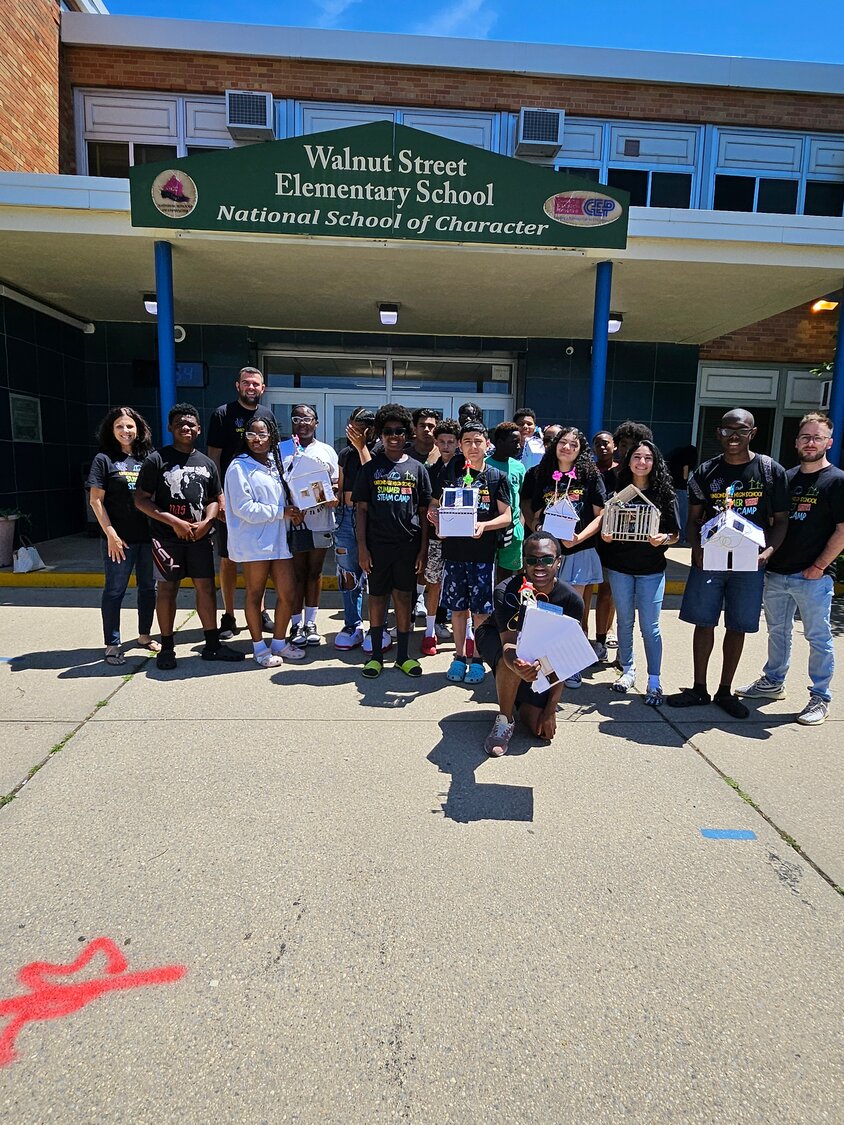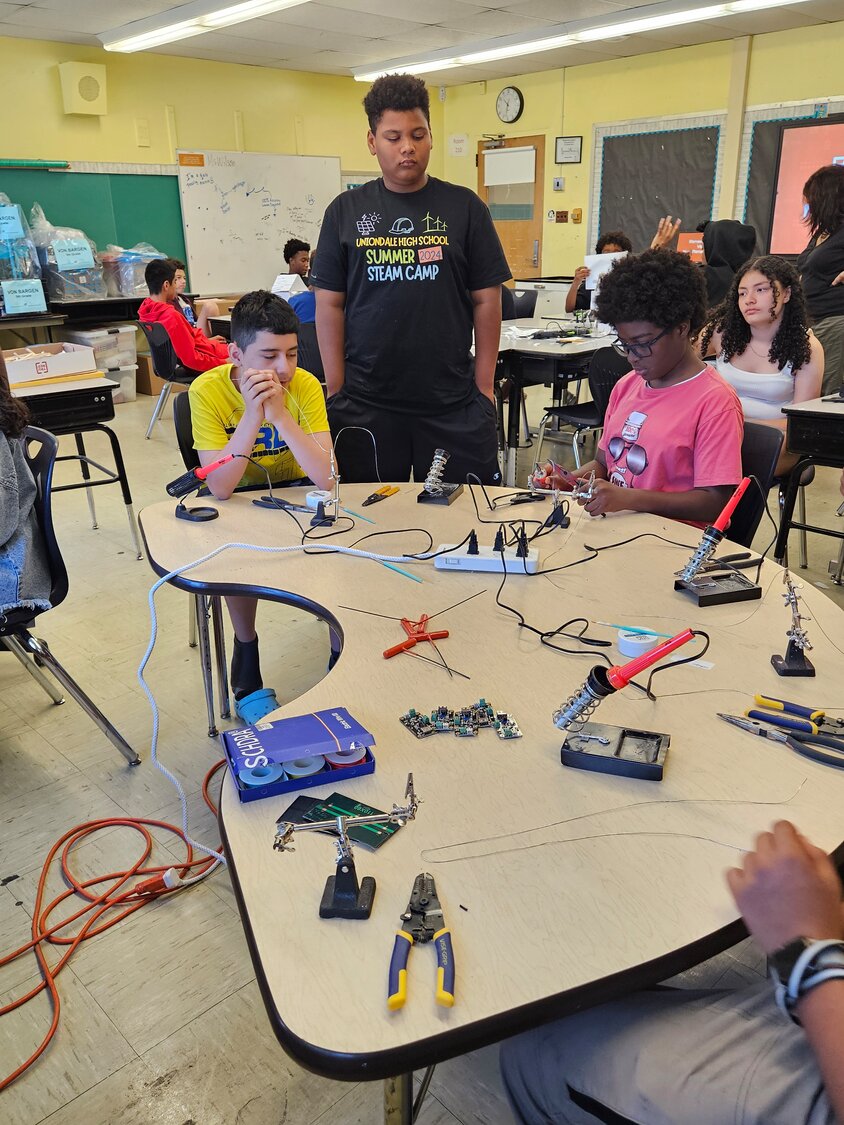STEAM camp inspires future engineers
The Uniondale school district is training its students to be the next astronauts, scientists and engineers, at a unique summer camp.
Middle and high school students recently rode the current of renewable energy at the district’s third annual Summer STEAM Camp.
STEAM, which stands for science, technology, engineering, arts and math, integrates elements of the arts, like creative thinking and design skills, with the discipline of science and math, expanding on traditional education and opening up opportunities for more Uniondale students.
This year’s weeklong program, held at Walnut Street Elementary School at the end of July, focused on the theme Creating Smart Homes Using Renewable Energy. There were 25 students, ranging from incoming seventh- graders to rising high school seniors, who dived into the world of sustainable technology through comprehensive lessons and hands-on projects.
“We are thrilled with the success of this year’s Summer STEAM Camp,” Monique Darrisaw-Akil, the district’s superintendent, said in a news release. “Our scholars had the chance to learn about renewable energy and sustainable solutions when it comes to smart homes. They learned how to use cutting-edge technology programs while collaborating with their peers and gaining real-world skills that will serve them well in the future.”
Students explored different types of renewable energy, including solar, wind, hydropower and biofuel, and how they can be used to make homes more sustainable. The camp began with students learning about building homes and the components that go into the construction, according to camp instructor Daniel Formichelli. Students designed their own homes and used physical materials to build them.
“They modeled it by taking balsa wood and building a scaled model of the house that they designed,” he said.
Students also learned about varying technologies, such as Arduino software, sensors and solenoid magnets, which are hardwares and softwares they incorporated into their model houses to replicate energy sources and produce power.
Students worked in teams to develop collaboration skills because “no engineer works as a solo individual on these projects,” Formichelli said, adding that a competition was held to see which team could generate the most power in their homes, with a point system that awarded points to each student based on their project’s power output.
Formichelli, who teaches physics and engineering at the high school, along with technology teacher Jack Drevnyak, ran the camp in a hands-on manner that focused on allowing the designs and construction to “come from the students themselves.”
“We really focused on student engagement, student trial and error, because most of learning, we believe, comes from trial and error,” Formichelli said. “It’s OK if they fail, if they’re doing it in an educational sense, but they have to learn from those mistakes.”
Camp participants were able to take home their projects at the end of the week, and they also received camp T-shirt to “commemorate their involvement in the program,” district officials said.
“We were impressed by the enthusiasm and dedication shown by all the scholars throughout the camp,” Arthur Registre, the district’s director of science, said in the release. “These young innovators dove into sustainable solutions and showcased their creativity and engineering skills.”
“We want to provide our kids every opportunity to be the future engineers, to be the future astronauts, to be the future scientists,” Formichelli said.
As technology continues to develop and expand globally, placing an emphasis on STEAM-related lessons and projects “equips students with essential skills for success in the 21st century,” Registre said.
“The Uniondale School District encourages and fosters STEAM programs and education to prepare students for future careers, promote critical thinking, innovation and problem-solving skills, and keep pace with the rapidly advancing technological world,” he added.









